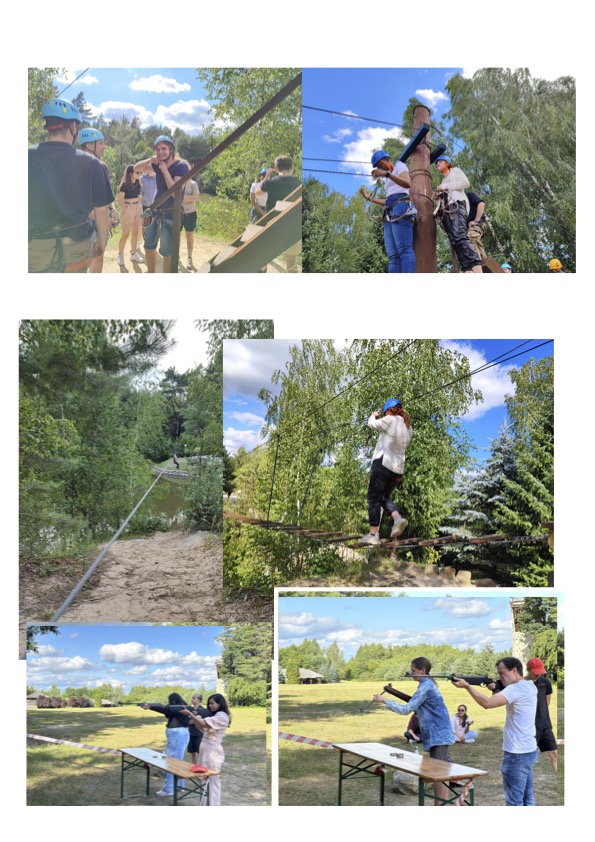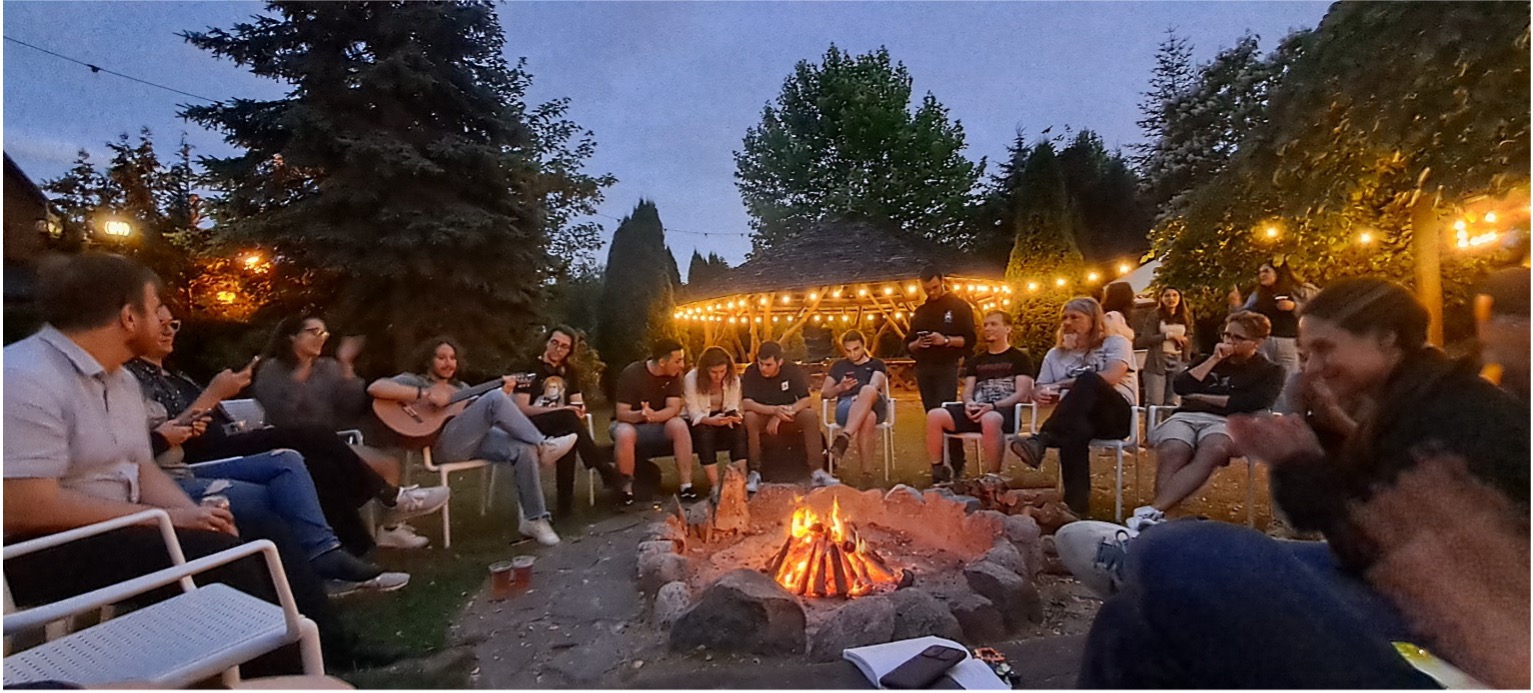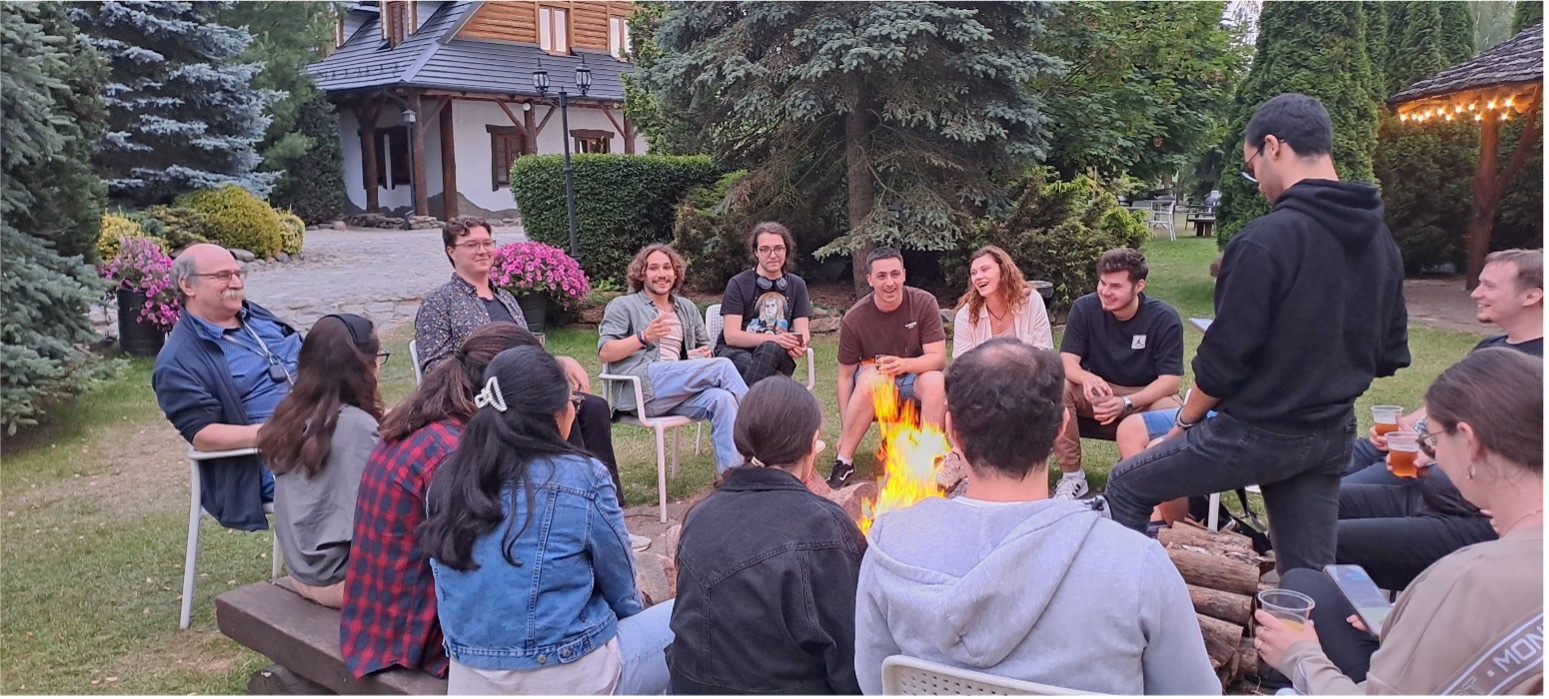BTS24 in Warsaw
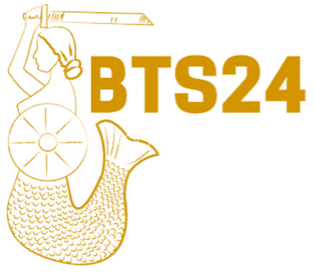
Basic Training School on Accelerators 2024
On June 18-27 2024, the International Basic Training School on Accelerators (BTS24) (https://indico.slcj.uw.edu.pl/event/8/) was held in Warsaw, Poland. The school was organized together by the Heavy Ion Laboratory, University of Warsaw and the Institute of Nuclear Chemistry.
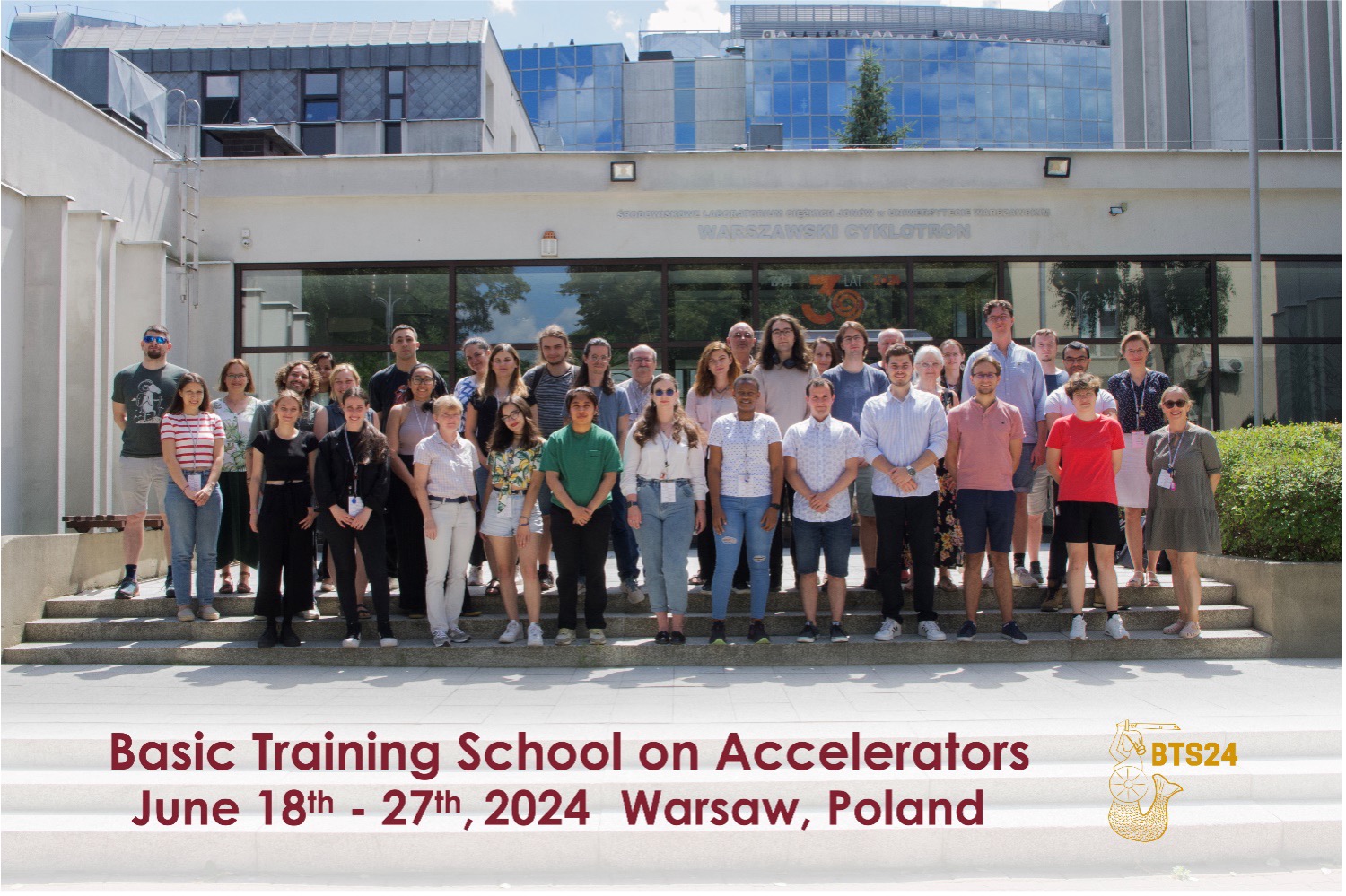
The participants of the school were students 18 and early stage scientist selected from among 39 submitted applications. The participants were representants of 14 countries: Argentina, Botswana, Bulgaria, Costa Rica, El Salvador, France, Mexico, Poland, Portugal, Romania, Sweden, Slovenia, Spain, Ukraine
Young physicists had the opportunity to expand their knowledge by participating in lectures given by local and international experts. The subjects presented in the lectures included the detection of ionizing radiation, introduction to gamma spectroscopy, basics of target preparation, fundamentals of nuclear reactions, production of radioisotopes for medical applications, and acceleration of heavy ions.
The critical part of the workshop was acquiring practical laboratory skills and teamwork. Participants carried out independent experiments in small groups, using the unique research equipment available at the HIL Warsaw, and had a chance to show the obtained results in the presentation session closing the school. Three experiments were performed on a 20Ne beam at the energy of 77 MeV from the Warsaw Cyclotron. The obtained data were subject to simple analysis aimed at answering research questions posed by the instructors. The workshop program was supplemented by a series of lectures introducing the issues related to the measurements performed and current problems of nuclear physics and applications in medicine and energy.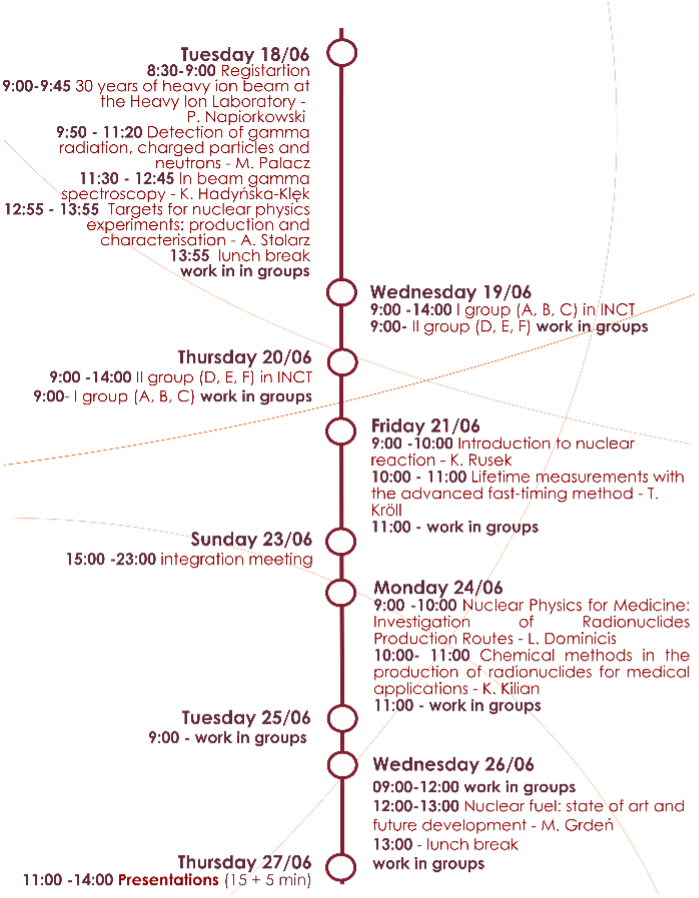
The students were divided into 6 groups to practice the following experimental topics:
- Gamma Spectroscopy
- Fast-timing measurement
- Target production and its thickness measurement
- Study of the effects of ionizing radiation on biological material
- Gas/Si telescopes in charge particle spectroscopy.
- Neutron measurements
The workshop was summarized with a mini-symposium. Participants presented presentations prepared based on their measurements and analysis.
Additionally for two days (June 19 and 20) exercises were organized at the Institute of Nuclear Chemistry and Technology aim to provide information on industrial applications of electron beamaccelerators and dosimetry methods of electron beam control. The BTS participants were welcomed by the Director of the Institute, Prof. Ph.D. Andrzej G. Chmielewski. The introductions to the experiments were the presentations on general aspect of particle accelerators technology, sterilization of medical devices, ionizing radiation dosimetry:
- Environmental Applications of electron beam accelerators – Andrzej G. Chmielewski
- General aspect of particle accelerators technology – Sylwester Bułka
- INCT Radiation Sterilization Plant – Magdalena Rzepna
- Laboratory for Measurements of Technological Doses – Marta Walo
- Introduction to experiments – Urszula Gryczka
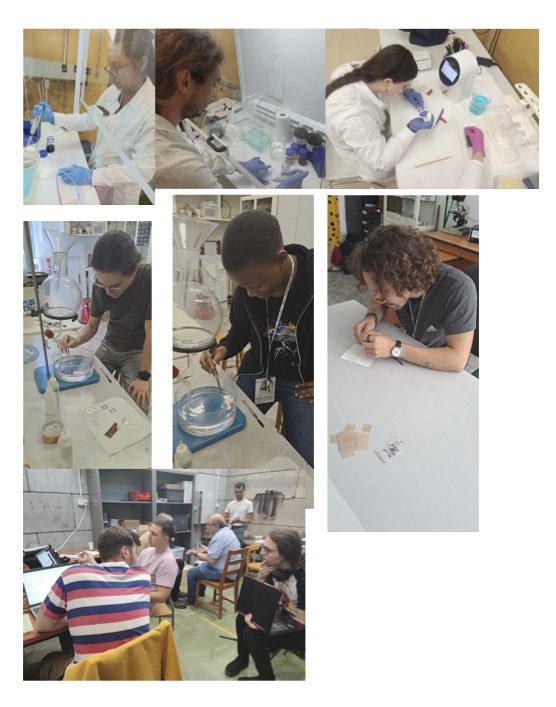
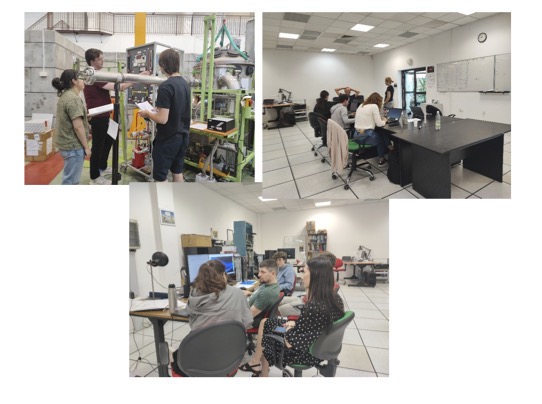
The exercises were carried out using two accelerators installed at INCT: the Elektronika accelerator generating an electron beam with an energy of up to 10 MeV. This accelerator is installed in INCT Sterilization Facility of Medical Devices and is used for both research and commercial scale irradiation. The second machine used in experiments was the ILU-6 accelerator, where measurements were made for an electron beam with an energy of 1.3 and 1.7 MeV. This accelerator is experimental platform aim to provide different parameters of the electron beam for laboratory or pilot scale irradiation to investigate environmental applications and materials modifications. The experiments aim to give introduction on electron beam irradiation process control. demonstrate how energy of electrons influence penetration ability of the beams. The properties of diffraction dosimetry and measurement methods are presented. The experiments used dosimetry systems: alanine palettes and electron resonance spectroscopy, calorimetry and foil dosimetry (PVC and CTA).
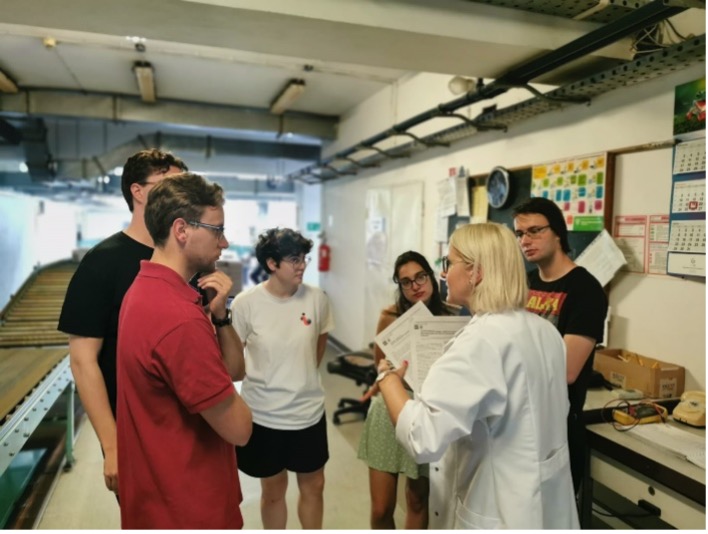
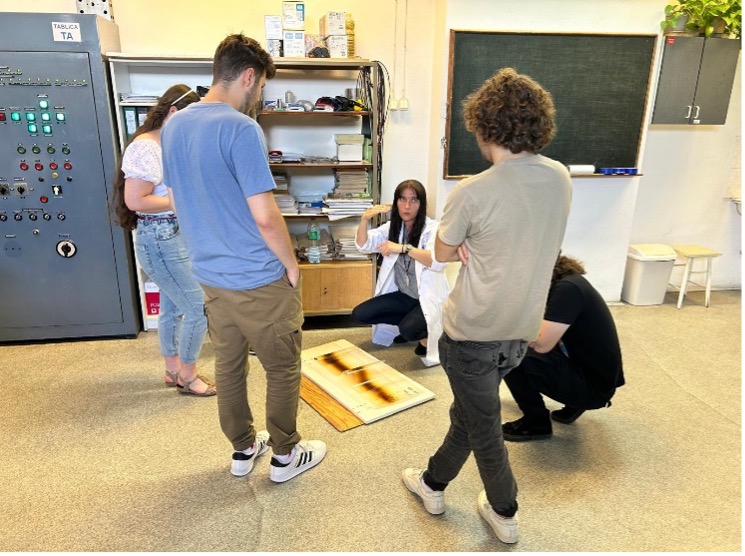
Experiments at Sterilization facility equipped with ELEKTROINK accelerator
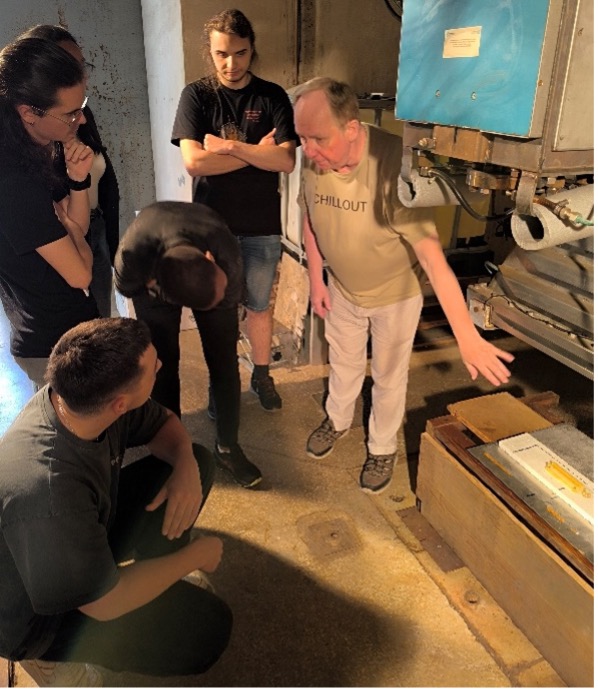
Samples irradiation using ILU 6 accelerator
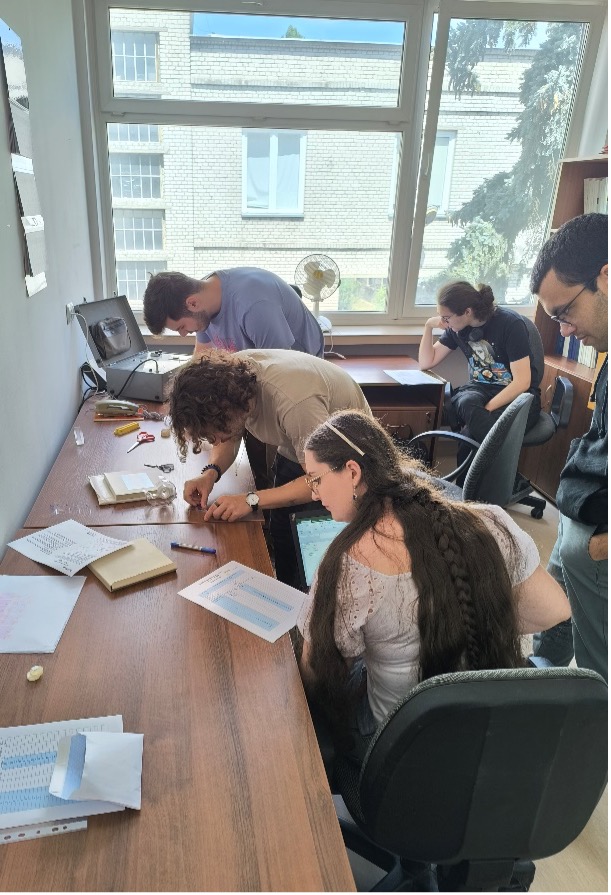
Dose measurement at INCT Laboratory for Measurements of Technological Doses
Apart from hard work, there was also time for fun together. On Sunday students and supervisors visited the “Rancho pod Bocianem” where attractions awaited them: a rope park and air gun shooting. After having fun together, there was a barbecue and a bonfire, where international hits were sung with a guitar.
